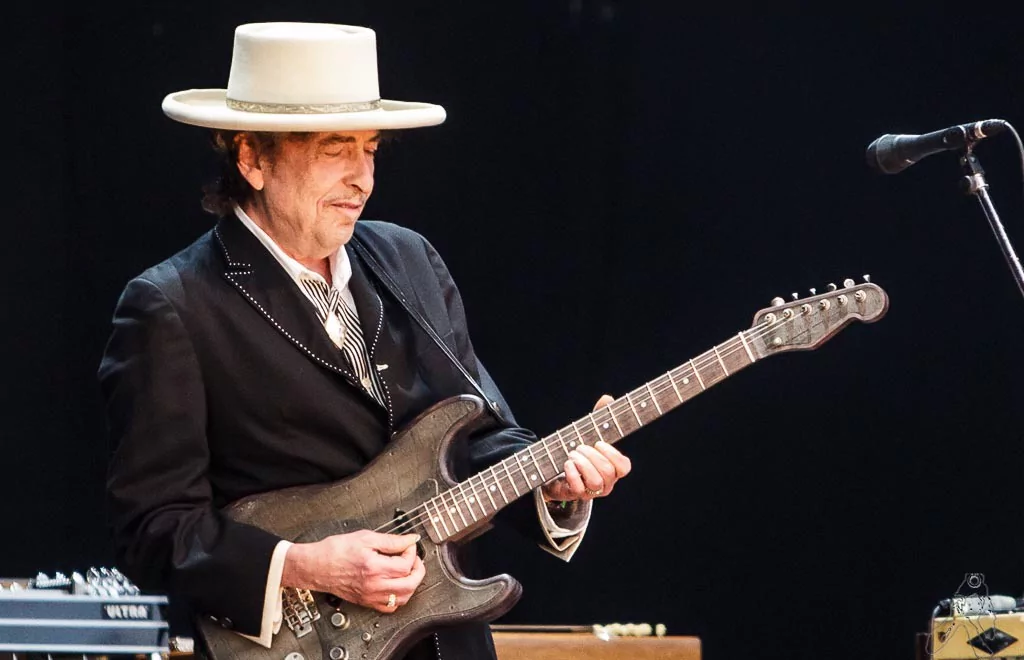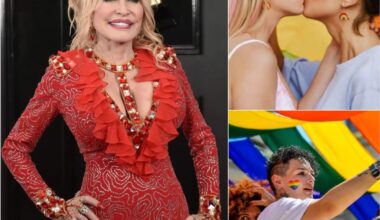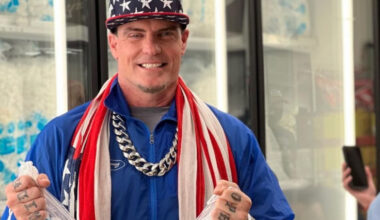Long before Bob Dylan electrified audiences or won a Nobel Prize, he was doing something both radical and deeply rooted: reimagining the American folk tradition as a modern prophetic voice. While many of his peers treated folk music as a historical form—something to be preserved—Dylan saw it as a living language, capable of urgent commentary and spiritual resonance. Through his early records, he didn’t just sing old songs; he summoned visions.
In the early 1960s, Dylan’s arrival in New York’s Greenwich Village coincided with the height of the folk revival. He quickly absorbed the traditional ballads, protest songs, and Appalachian laments that filled smoky clubs and dusty songbooks. But even then, Dylan wasn’t content to merely echo the past. What he sought was something deeper—a kind of lyrical alchemy that could carry ancient forms into the chaos of the modern world.

Songs like “A Hard Rain’s A-Gonna Fall,” “Masters of War,” and “The Lonesome Death of Hattie Carroll” drew directly from the structure and tone of traditional folk ballads, but the content was something else entirely. These were not tales of long-dead lovers or lords on horseback. They were grim, urgent poems about nuclear fear, racial injustice, and state violence. Dylan was using the past not as a museum but as a megaphone.
In doing so, he began to sound less like a folk singer and more like an Old Testament prophet. His lyrics overflowed with biblical imagery: floods, swords, judgment, plagues. But the “God” in Dylan’s songs was rarely named. Instead, morality came from conscience, from observation, from the recognition of patterns repeating throughout history. Dylan didn’t just criticize injustice—he warned of it, foresaw its consequences, and demanded spiritual reckoning.
Consider “With God on Our Side,” a song that masquerades as patriotic reflection but builds into a devastating critique of historical violence. Dylan’s narrator questions the idea of divine sanction in war, weaving together centuries of American aggression with a bitter refrain: “You don’t count the dead / When God’s on your side.” It’s not just a folk song—it’s a sermon, a lament, and a prophecy rolled into one.
Dylan’s prophetic voice wasn’t just in the words—it was in the form. By borrowing the cadence and simplicity of folk storytelling, he made his warnings accessible, memorable, almost mythic. His songs felt timeless because they used timeless tools: repetition, rhyme, parable. But they were rooted in the present moment, speaking to civil rights marches, Cold War anxieties, and the rot inside American institutions.

Crucially, Dylan’s “prophecy” wasn’t dogmatic. He didn’t claim divine authority or preach certainty. His work was filled with ambiguity, contradictions, and mystery. He asked questions more often than he gave answers. That, perhaps, is why his songs endure. Like the prophets of old, Dylan wasn’t offering comfort—he was offering challenge.
This transformation of folk into prophecy reached its height between 1963 and 1966, with albums like The Freewheelin’ Bob Dylan, The Times They Are A-Changin’, and Bringing It All Back Home. These records showed a man who understood the tradition but refused to be bound by it. When Dylan “went electric,” it wasn’t a rejection of folk—it was an expansion of it. He was carrying that prophetic spirit into louder, wilder territory.
Even in his later work—whether his gospel period in the late ’70s or his meditative albums like Rough and Rowdy Ways—the prophetic tone remains. His 2020 track “Murder Most Foul,” a sprawling 17-minute reflection on the assassination of JFK, reads like an apocalyptic vision of America’s fall from grace. References to historical events, cultural icons, and spiritual malaise are woven into a tapestry of mourning and warning.
What Dylan accomplished was more than a shift in genre or style. He redefined what popular music could be. He proved that a song could carry the weight of scripture, the fire of protest, and the depth of literature all at once. In doing so, he inspired generations of songwriters to think beyond entertainment—to see themselves as commentators, poets, and yes, even prophets.
Artists like Patti Smith, Bruce Springsteen, Tracy Chapman, and Kendrick Lamar have all, in their own ways, walked paths Dylan helped carve. They, too, have used song to confront injustice, question power, and speak directly to the soul of a society in flux. Dylan wasn’t just a man of his time—he created the template for a new kind of timelessness.
Of course, Dylan has always resisted labels. Call him a prophet, and he’ll shrug. Call him a genius, and he’ll laugh. But what can’t be denied is the role he’s played in transforming American folk traditions into something larger than themselves. He took their bones, added breath, and gave them new life.

Today, as the world faces another era of uncertainty and upheaval, Dylan’s early songs feel eerily current. The names may have changed, the details shifted—but the warnings, the wisdom, and the weary hope remain. That is the mark of true prophecy.
Bob Dylan didn’t just borrow from American folk traditions. He used them to look ahead. And somehow, even now, he’s still one step in front of the rest of us.





